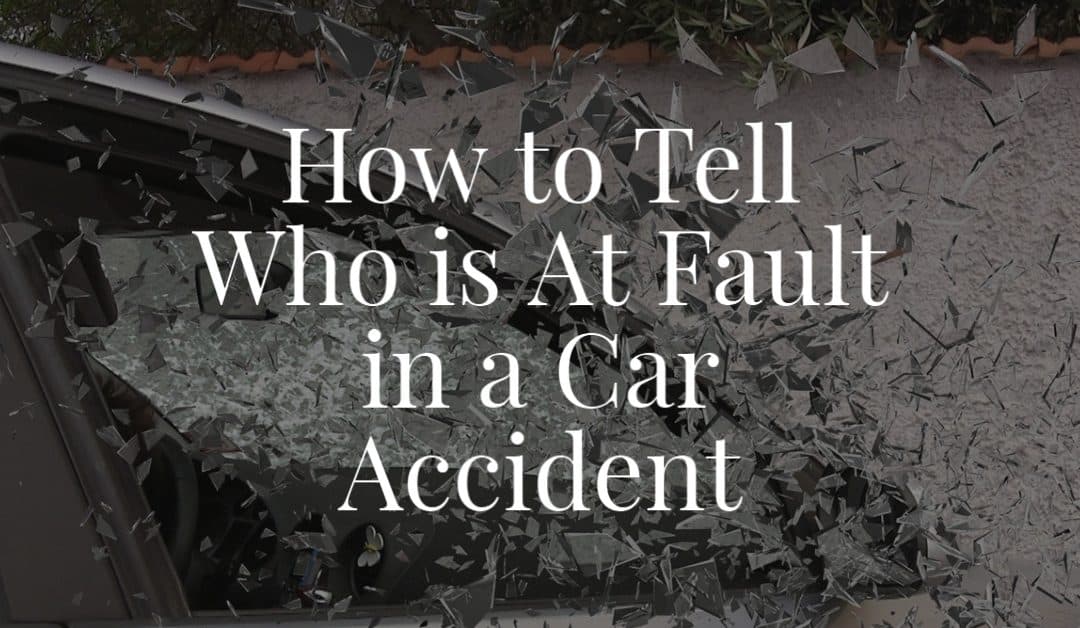After a car accident in North Carolina, your mind races, your pulse skyrockets, and you check for injuries. Your blood pounds in your ears as you wonder, “Whose fault is this accident?” It is easy to see our own perspective on the accident. However, often drivers disagree about how the turn of events came about. With witnesses, police officers, and the driver’s stories, there are differing ways of seeing fault. Specific laws in North Carolina show how to tell who is at fault in a car accident. Let’s look at how those laws work in real life.
Police Reports
For an accident with significant damage or injuries, you tell your version of events to the police officer at the scene. The police officer writes a report giving their objective retelling of your story. They relay the other driver’s story. The police present note the positions of the vehicles and take pictures of the scene and vehicle damage. Often, they also draw a diagram of the road and scene.
Watch What You Say
Your statements become part of the investigation into who is at fault. Be careful about how you phrase your words and don’t speak without thinking.
Above all, do not admit fault at the scene. Take time to think about what happened when you are calmer and more reflective. Don’t blurt out thoughtless statements at the scene that may implicate you in some way.
Making Insurance Claims
After the accident, you and the other driver contact your insurance companies to make claims covering your vehicle damage and injuries. If you are 0% at fault, you can contact the other driver’s insurance company directly for payouts.
The insurance adjusters look at the available evidence. They place fault on a driver based on available evidence and testimonies. They may call and ask to record your statement. If there is a disagreement, the adjusters will further discuss and negotiate. They will collect more data to support the scenarios suggested by the evidence.
When speaking with insurance companies, bring an attorney to any recorded statements. An attorney can help you know how to phrase what you are saying. The last thing you need is for an adjuster to misunderstand your words.
Determining Fault in North Carolina
In North Carolina, who is at fault matters. If the other driver was flat-out drunk, but you admit to not looking both ways at a green light, you could be considered partially at fault. In NC, if you are found partially at fault, you don’t collect damages from the other driver or their insurance company.
If you are at fault for any percentage of the accident, no matter how small, your own insurance company pays your claim. There is no reimbursement from the other driver’s insurance at this point because you “contributed” to the accident. Your “contributory negligence” means that your insurance rates can skyrocket.
However, if the adjusters agree that you have 0% fault, then the other driver’s insurance pays your damages and medical bills in what is called a liability claim. Your own insurance rates do not go up.
NC Law: Pure Contributory Negligence
The North Carolina law that requires you to be 0% at fault to collect damages from the other driver is called “pure contributory negligence.” This law means that your own insurance covers your own damages and injuries if you have any fault in an accident. The insurance company then passes on the costs to you in your future insurance rates.
According to the NC Department of Insurance, “North Carolina Contributory Negligence Law bars a driver from collecting damages if determined to be partially at fault. In essence, if you contribute to an accident, you may not be able to collect on a liability claim. Any disagreement over negligence may ultimately have to be resolved in a court of law.”
The NCDOI also states that “If you and the insurance company cannot agree on the value of your claim you may wish to seek legal advice.”
Insurance Reps are Not Your Friend
If you are in a car accident, the wisest step is to hire an attorney to walk with you through the claim-making process with your insurance company. Insurance companies make the big bucks from your premium each month, but they are not on your side.
Your adjuster is not your personal representative, even if they may call themselves that and claim to help you. Their job as a claims representative is to save money for the company, not help you pay your bills.
Find Help
If you have medical bills and car expenses piling up from an accident and don’t know what to do, contact us at Cape Fear Law. Our experienced personal injury attorneys can work with you to get the reimbursement and damages you need to keep moving forward.
If the insurance adjusters are ruling against you or the police report contains mistakes, let us help you get the medical care you need and the payout you deserve. Don’t let a car accident keep you from living your best life.
Contact us today for a free initial consultation and find the answers you need.

